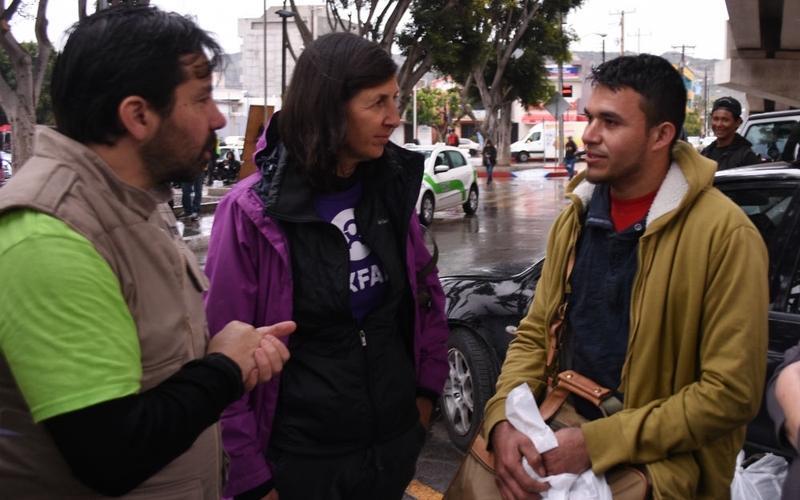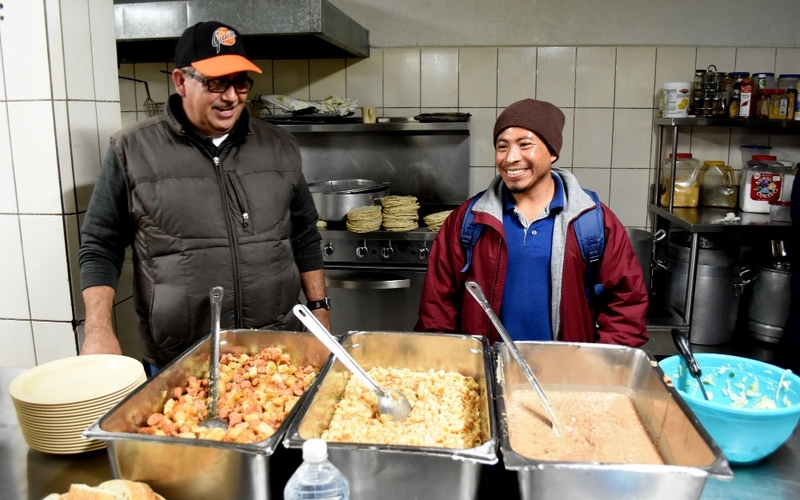“We need an immigration policy for the 21st century, not the 12th century.”
A backlog of asylum cases.
Social service organizations stretched to the breaking point.
Shelters at full capacity.
These are just a few examples of what Oxfam America President Abby Maxman saw when she went to Tijuana, Mexico earlier this week.
“My visit showed me clearly that the current crisis at the US-Mexico border is nothing more than a manufactured PR stunt by President Trump,” she said. “The fight over the wall is politics at its absolute worst, exploiting the pain of innocent women, men, and children instead of addressing them with humane policies.”
Maxman joined Oxfam Mexico’s Executive Director Ricardo Fuentas Nieva to meet with migrants, asylum-seekers, and service organizations involved in the humanitarian response in Tijuana. She learned that a lack of resources are endangering peoples’ lives on the border, in particular LGBTQ migrants and unaccompanied minors. Mexican social service organizations are struggling to handle the increased caseload of migrants from Central America as well as deportees from the US, while many people in need have no choice but to fend for themselves on the streets because there are no more spaces in area shelters.
After her meetings, Maxman said she was inspired by the stories of people arriving to the border seeking opportunity in the US.

“The migrants I met in Tijuana are no different than the people who first built our country and what generations of Americans have done: arrive with aspirations to build a better life, hope to live in peace and freedom, allowing their children to thrive, and contribute to our economy,” Maxman said. “We should live up to our legacy as a welcoming nation that was built on the hard work of immigrants, rather than demonize and criminalize them.”
Oxfam is partnering with organizations near the border to provide social services to families and members of the LGBQTI community. We have also been working in Central America for decades to combat violence and challenge inequality—the real reasons people leave their homes in search of a better life. Along their journey, we help them with food, water, hygiene kits, and legal support. When they seek protection, we defend their right to asylum and advocate for more humane policies at the border.
And for those who make it to the United States, we advocate for fair labor policies, particularly for women, so that they can work legally and send support home to their families.

“We need an immigration policy for the 21st century, not the 12th century,” Maxman said. “Investing in sensible and humane border security through increased investments to process asylum claims, with well-trained and equipped staff and social services, will address the humanitarian needs of those arriving at the border, fulfill the US government’s legal obligations, and prove the US is actually serious about addressing migration from Central America.
It’s an investment with long-term benefits for all.”
Learn more about what’s really going on at the US southern border.
